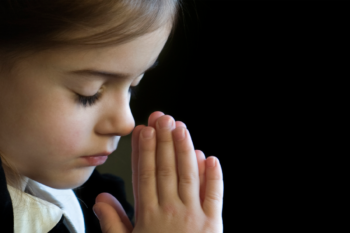 The UK, Welsh, and Northern Ireland Governments have refused to act upon United Nations human rights recommendations, by stating they have no plans to reform the archaic collective worship laws. The latest refusal came as part of the UK’s Response to the UN Committee’s List of Issues on the Rights of the Child. Humanists UK campaigns for the replacement of compulsory worship in schools with inclusive assemblies suitable for children of all backgrounds and beliefs. It said it was disappointed by the decision.
The UK, Welsh, and Northern Ireland Governments have refused to act upon United Nations human rights recommendations, by stating they have no plans to reform the archaic collective worship laws. The latest refusal came as part of the UK’s Response to the UN Committee’s List of Issues on the Rights of the Child. Humanists UK campaigns for the replacement of compulsory worship in schools with inclusive assemblies suitable for children of all backgrounds and beliefs. It said it was disappointed by the decision.
The UK is the only sovereign state in the world to impose worship in all state schools, including schools without a religious character. Since 2016 the United Nations Committee on the Rights of the Child (UNCRC) has been recommending that this law is repealed, in order to uphold children’s rights to freedom of religion or belief. The outdated law dates back to 1944, is unpopular with parents, and ignored by some schools. Nevertheless, Government ministers recently vowed to step up enforcement.
Humanists UK campaigns to abolish compulsory collective worship, and instead free up schools to hold assemblies on topics parents and children do want to see covered. This would be a popular change: a YouGov poll from 2019 found that religious worship came bottom of a list of 13 possible topics that could be covered in assemblies, with fewer than one third of parents considering it to be appropriate.
Humanists UK Education Campaigns Manager Robert Cann said:
‘This refusal to act is disappointing. Since more than half of the adult population now report that they are non-religious, and this proportion grows all the time – especially among the young – the outdated law just looks more out of touch with every passing year.
‘Of course, bringing children together at the start of the school day is important. That is why we campaign for inclusive assemblies built around shared values. Such assemblies can be an opportunity for pupils to celebrate achievements, find out about different religions and beliefs, explore moral and ethical questions, and reflect on what is happening in the world around them. However, imposing worship on non-Christians is both unnecessary and, as the UNCRC makes clear, a breach of children’s rights to freedom of religion or belief.
‘We will continue to push for the end of collective worship in school assemblies – whether that’s through primary legislation, or through the courts.’
Notes:
For further comment or information, media should contact Humanists UK Director of Public Affairs and Policy Richy Thompson at press@humanists.uk or phone 020 7324 3072 or 020 3675 0959.
Read more about our work on collective worship.
Read the UK’s Response to the UN Committee’s List of Issues on the Rights of the Child.
Visit the Assemblies for All website.
Read our report on committee stage of the Schools Bill in the House of Lords.
Read our news item on how a school conceded in a collective worship legal case.
Humanists UK is the national charity working on behalf of non-religious people. Powered by 100,000 members and supporters, we advance free thinking and promote humanism to create a tolerant society where rational thinking and kindness prevail. We provide ceremonies, pastoral care, education, and support services benefitting over a million people every year and our campaigns advance humanist thinking on ethical issues, human rights, and equal treatment for all.
